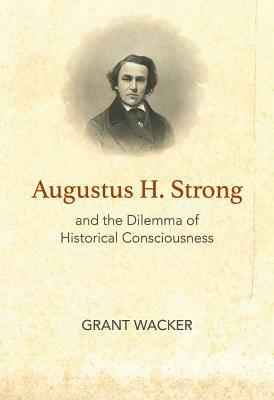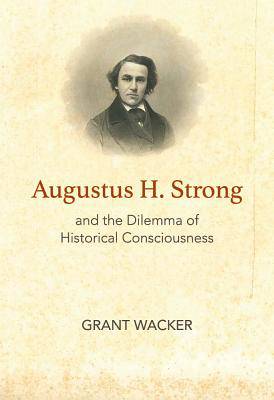
- Afhalen na 1 uur in een winkel met voorraad
- Gratis thuislevering in België
- Ruim aanbod met 7 miljoen producten
- Afhalen na 1 uur in een winkel met voorraad
- Gratis thuislevering in België
- Ruim aanbod met 7 miljoen producten
Omschrijving
At the end of the nineteenth century, Augustus Strong emerged as one of the most influential church leaders and theologians in America. But, as Grant Wacker reveals in this masterful study, Strong also proved to be as tragic a figure as he was influential.
Strong was forced to choose between conceptual worlds that were, to him, equally incompatible and compelling. Strong wrestled with how the critical study of history, exemplified in the method commonly called "historicism" (or "historical consciousness"), can be reconciled with the many ahistorical assumptions embedded in the claims of traditional Christianity. Is the notion of human sinfulness, for example, simply an artifact of time and place? Or does it carry an underlying truth that endures, independent of the biblical context and interpretation of classic Christian thinkers?
Strong acquired a historical awareness considered rare among conservative scholars. Despite cultivating this historical sensibility, he struggled with its implications. In the end, Wacker writes, Strong "clung to the conviction that the faith once delivered unto the fathers somehow stands above the vicissitudes of history, even as he became increasingly conscious that all things human are fragile creations of time and place." This edition, complete with a new preface, reveals why Strong remains relevant today. Strong, though a man of his time, illustrates the perennial conflict created by competing interests of theology and history, a conflict that still torments those who seek to be faithful to the obligations of both the church and academy.Specificaties
Betrokkenen
- Auteur(s):
- Uitgeverij:
Inhoud
- Aantal bladzijden:
- 228
- Taal:
- Engels
Eigenschappen
- Productcode (EAN):
- 9781481308441
- Verschijningsdatum:
- 15/08/2018
- Uitvoering:
- Paperback
- Formaat:
- Trade paperback (VS)
- Afmetingen:
- 152 mm x 229 mm
- Gewicht:
- 344 g

Alleen bij Standaard Boekhandel
Beoordelingen
We publiceren alleen reviews die voldoen aan de voorwaarden voor reviews. Bekijk onze voorwaarden voor reviews.












